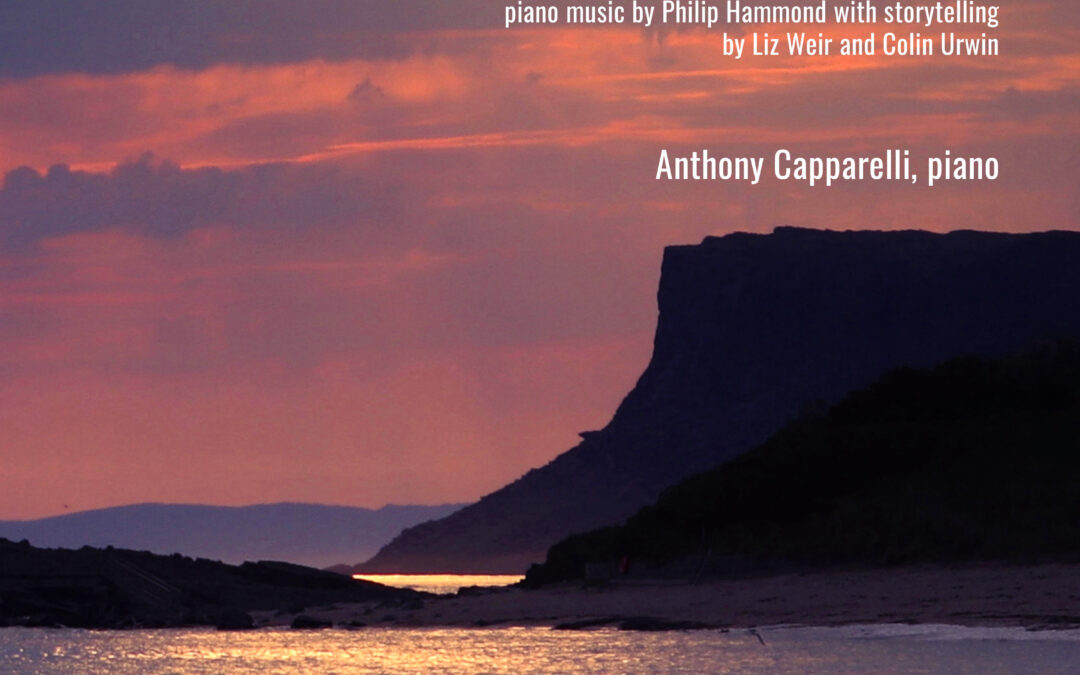Piano music by Philip Hammond with storytelling by Liz Weir and Colin Urwin
Anthony Capparelli piano
Divine Art ddx 21125
American pianist Anthony Capparelli, now resident in Belgium, presents his own choice of piano music by the Northern Irish composer Philip Hammond (b. 1951). The music illustrates the composer’s dedication to his home region of the Glens of Antrim. Hammond’s love of the traditional music of Ireland is illustrated in the opening selection of seven piano pieces originally for harp, in piano transcriptions collected from the 1792 Belfast Harp Festival by the organist Edward Bunting (1773 – 1843).
The music includes one piece by Ireland’s earliest celebrated composer, the blind harpist Turlough O’Carolan. Each of these is played in the opening Selections from Miniatures & Modulations (2011). These original transcriptions are eachfollowed by Hammond’s own pianistic expansions in styles, ranging from lyrical to dramatic, and fiery piano virtuosity.
The folk core of the music is never lost and, as Capparelli writes in his accompanying note, ‘I hear the sounds of waves … shrouded in mist across the water, the clinking of glasses, … fiddle tunes in the pub, mournful curlews in the bog, and stories being told around a turf fire’. Hammond’s tuneful music brings all such folksy scenes vibrantly to life.
After two of Hammond’s solo piano pieces, the short and delightful child-centred piece Aoife Óg, and the extensive Ireland inspired Forgotten Longing, we come to the heart of the recording, five stories spoken by Liz Weir and Colin Urwin, with filmic piano backgrounds composed by Philip Hammond.
Celtic tales of humans spirited away by fairies, or peoples from beneath the sea, are brought to life by the two story-tellers with their sense of magic magnified by Hammond’s piano music. The music has a clear folk background. In one case, The Last Wolf cleverly uses the hymn tune All Creatures of our God and King with its original words by St Francis of Assisi. The Priest absolves the wolf and his wife of a curse making them, in a sense, werewolves, but apparently these are much gentler than those from elsewhere in European folk tales.
The stories are all surprising and hugely entertaining. The accompanying piano music, played with considerable virtuosity and depth of feeling by Anthony Capparelli, takes us back to childhood into that extraordinary dream-world of Celtic imaginings.
Review by Alan Cooper

